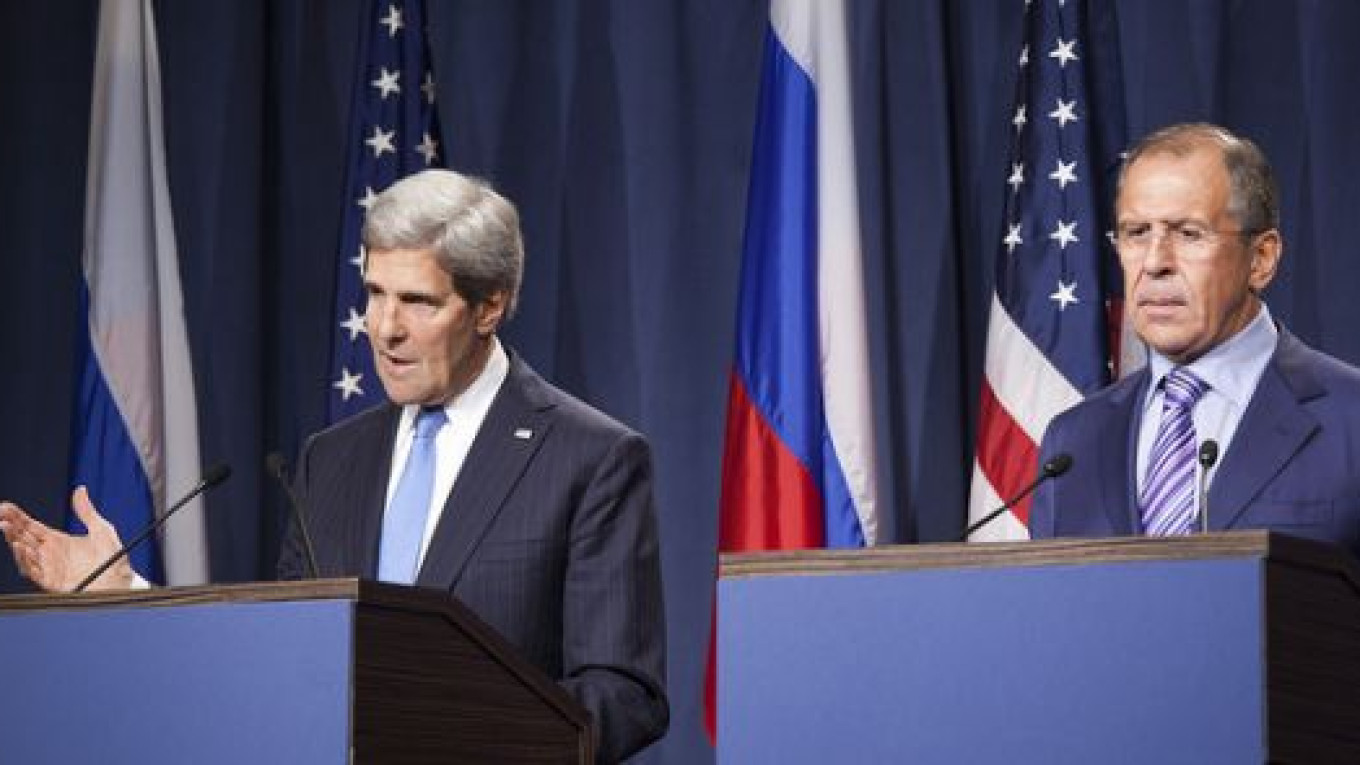Foreign Minister Sergei Lavrov believes that the United States is "beginning to blackmail" Russia into accepting a UN resolution on Syria.
American diplomats are pushing for a Security Council resolution stemming from Chapter 7 of the UN Charter and are threatening to wind down work in the Hague's Organization for the Prohibition of Chemical Weapons if Russia doesn't agree, the minister said in an interview with Channel One on Sunday.
"It's a complete departure from what we agreed on with [U.S. Secretary of State] John Kerry — first a decision by the OPCW and only then a resolution supporting that decision by the UN Security Council, but not referencing Chapter Seven," Lavrov continued.
Mention of Chapter Seven could open the door for the international community to intervene militarily in Syria, a possibility that Russia has vigorously opposed.
The basic disagreement that has complicated negotiations since Kerry and Lavrov's breakthrough agreement on Sept. 14 remains: while Western countries claim that the Syrian government was behind the late August chemical attack outside Damascus, Russia insists that it could have been perpetrated by insurgents aiming to provoke foreign military intervention.
The Syrian government has reportedly given Russian diplomats evidence of insurgents' involvement in the attack, which Lavrov said is "completely technical" and currently under examination by Russian specialists.
Russia's head diplomat repeated doubts about the impartiality of the UN report on the chemical attack, saying that there were additional witnesses who had not been questioned, including journalists who had spoken with insurgents claiming to have received weapons from abroad.
"I think that our Western partners are now simply blinded by their ideological mission to change the regime. Because a few years ago the leaders of the Western world vociferously announced that there was just about no more space for Assad in this world, that he had to go," Lavrov said.
A Message from The Moscow Times:
Dear readers,
We are facing unprecedented challenges. Russia's Prosecutor General's Office has designated The Moscow Times as an "undesirable" organization, criminalizing our work and putting our staff at risk of prosecution. This follows our earlier unjust labeling as a "foreign agent."
These actions are direct attempts to silence independent journalism in Russia. The authorities claim our work "discredits the decisions of the Russian leadership." We see things differently: we strive to provide accurate, unbiased reporting on Russia.
We, the journalists of The Moscow Times, refuse to be silenced. But to continue our work, we need your help.
Your support, no matter how small, makes a world of difference. If you can, please support us monthly starting from just $2. It's quick to set up, and every contribution makes a significant impact.
By supporting The Moscow Times, you're defending open, independent journalism in the face of repression. Thank you for standing with us.
Remind me later.


